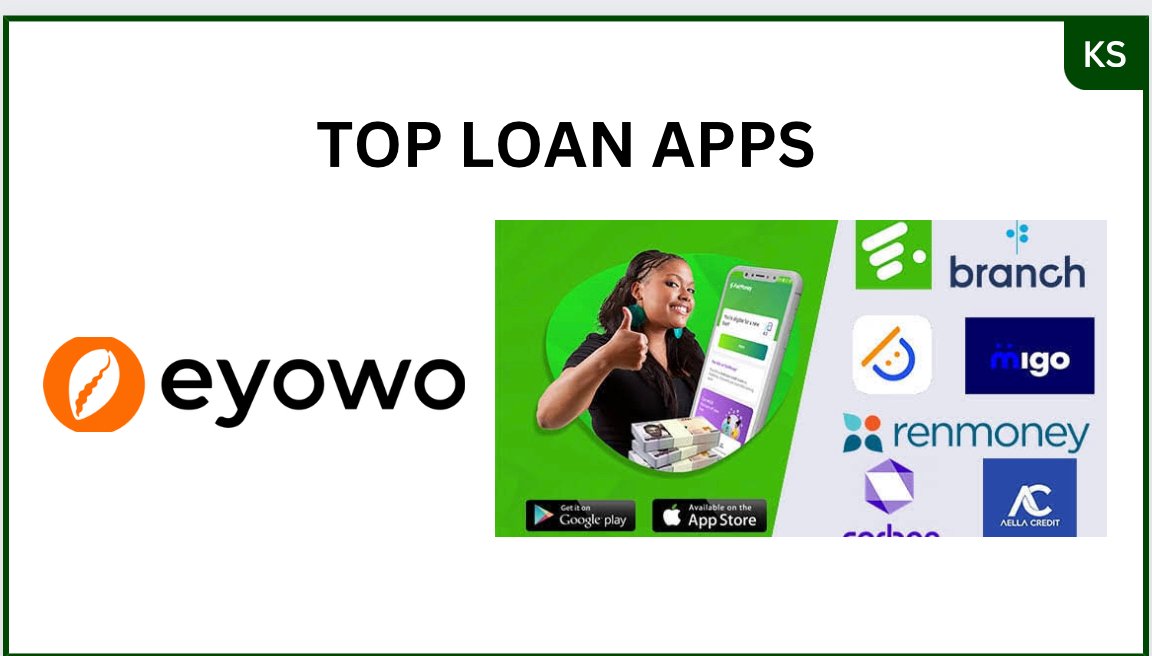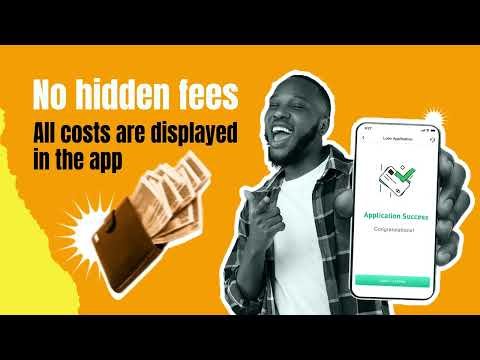When I was in my third year of university a few years ago, I found myself in a difficult financial situation. As a student, money was always tight and it was hard to make ends meet each month. One day, a fellow classmate told me about these loan apps that offered fast cash loans with no collateral required. Curious, I downloaded a few of these apps to check them out.
The apps made the loan application and approval process seem very straightforward. I just had to provide my BVN, a selfie photo, and details about my monthly income. Within minutes, I was approved for a ₦20,000 loan with a 2-week repayment timeline. The interest rate seemed reasonable at first. Relieved to now have some cash in hand, I was able to pay my school fees and buy some books that I needed.
However, a few weeks later I realized I did not have enough money to repay the full loan amount plus interest by the due date. That’s when I made my first mistake – I took out a second, larger loan from another app to repay the first one. And so the cycle continued, as I kept using new loans to pay off previous ones. Before I knew it, I had accumulated debts from 6 different loan apps, totaling over ₦150,000. By this point, the accumulated interest rates had caused the debts to snowball terribly. Each month, the minimum repayment amounts increased, and I struggled to keep up. I started missing payment deadlines and incurring penalty fees, sinking deeper into debt.
It was a scary situation to find myself in during my final year of university. I was stressed out all the time, worrying about how I would repay such massive debts. That’s when I realized I needed to learn more about these loan apps and devise a plan to get out of this debt cycle before it was too late.
So, in today’s article, I will be showing you the practical way on What to do After Having Too Many Debts with Online Loan Apps and Couldn’t Pay Back.
Risks of Online Payday Loans
To properly understand my situation and come up with a way out, I did some research online on the workings of payday or online payday loan apps. These are some of the key things I discovered
High Interest Rates
The interest rates charged for these short-term loans are typically between 300-500% Annual Percentage Rate (APR). Compared to traditional bank loans which may have single-digit interest rates, these payday loan rates are extremely predatory. The high costs make the loans very difficult to repay on time, trapping borrowers in a cycle of constantly taking newer loans to pay off previous debts.
No Proper Affordability Assessment
Unlike banks, these loan apps do minimal checks on applicants’ ability to repay the loan amount. They rely solely on providing proof of steady income like a pay slip. This makes it easy for anyone to qualify for loans, even when they cannot realistically afford the repayments.
Short Loan Terms
Most payday loans are structured to be repaid within 2-4 weeks, along with the accumulated interest. But many borrowers realistically get paid monthly salaries, making the short repayment windows very difficult to meet in practice without defaulting.
Risk of Debt Spiraling
If the loan cannot be paid in full on time, borrowers may resort to “rolling over” their debts by taking newer, larger loans. This causes the total debt obligations to grow rapidly out of control through compounding interest charges with each rollover.
These were some alarming revelations for me. It became clear how predatory the business model was for these loan apps and why I had sunk so deep into unmanageable debt.
How to get out of Debt with Online Loan Apps
Understanding the risks opened my eyes to how urgently I needed to tackle this debt problem before it completely ruined my financial future. Here is the step-by-step strategy I developed:
Stop Taking Any New Loans
The first step had to be stopping the bleeding by avoiding taking any newer loans that would only add to my debts. I knew I had to find solutions within my existing means to start paying off loans.
Create a Detailed Budget
I sat down and listed all my sources of monthly income as a student, like allowances and side jobs. I also listed all essential expenses like rent, utilities, food etc. This helped identify any areas I could potentially cut costs to free up money for loan repayments.
Contact Lenders to Restructure Loans
I spent time contacting each lender one by one to explain my situation politely and request better terms. Things like lower interest rates, waived penalties, or extending the terms of the loans to make monthly payments more affordable. Interestingly, two lenders did agree to such concessions after negotiations.
Ask Family for Temporary Help
I spoke to my parents and sister, admitted my mistakes, and requested if they could lend me interest-free amounts equivalent to one or two of the loans in total. This helped take some immediate pressure off.
Make Minimum Repayments Strategically
With a bit more breathing room, I focused on making at least the minimum repayments due to prevent penalties or affecting my credit scores. I started with the loans carrying the highest interest rates as each successful repayment reduced my accumulating interest costs.
Track Repayments Religiously
To stay on top of the numerous debts and repayment deadlines, I maintained detailed records of loan amounts, due dates, payment schedules, interest applied each month etc. in an Excel sheet. This organizing method helped keep me accountable.
By executing this measured strategy consistently over the next 6 months, I was finally able to emerge completely debt-free once again through sustained focus and discipline. It was not an easy journey, but one that taught me very valuable lessons.
Conclusion
To conclude, while online payday loans offer quick cash, their risks should never be taken lightly.
Borrowers must tread carefully to avoid getting caught in destructive debt cycles. With open acknowledgement of mistakes, proper understanding of such loans, seeking help through negotiating better terms or other debt solutions, and disciplined execution of repayment plans, getting out from under crushing debt burdens is very much possible with time and dedication. Staying financially prudent and avoiding future reliance on payday loans for emergencies is also vital for long-term well-being.
Common FAQs about Getting Out of Online Payday Loan Debt
What Do I Do if a Lender Starts Harassing Me?
If a lender begins threatening calls, visits or legal notices even after negotiating repayment plans, the best solution would be filing a formal complaint with regulators like the Central Bank and Nigeria Communication Commission (NCC). This pressures lenders to respect agreed terms or face punitive actions, allowing borrowers breathing room.
What will happen if I refuse to pay my online loan?
If you refuse to pay back your online loan, there can be serious consequences:
- Your credit score will be negatively impacted. Defaulting on loans is reported to credit bureaus, making it harder to get approved for credit cards, loans, or even jobs in the future.
- The lending company may send your account to collections. This means a collections agency will start contacting you aggressively to try to get you to pay. They may even take legal action.
- Your outstanding debt will continue to grow due to late fees and penalties. This makes it even harder to pay back over time.
- The lending company may share your contact information with other lenders, leading to more harassment. Some companies even send threatening messages to your friends and family.
- You could face legal consequences. While unlikely for small loans, defaulting on larger amounts could potentially lead to lawsuits or even criminal charges in some cases.
The best approach is to communicate with the lender if you are having trouble making payments. Many are willing to work with you on a payment plan or extension. Ignoring the debt will only make the situation worse in the long run.






